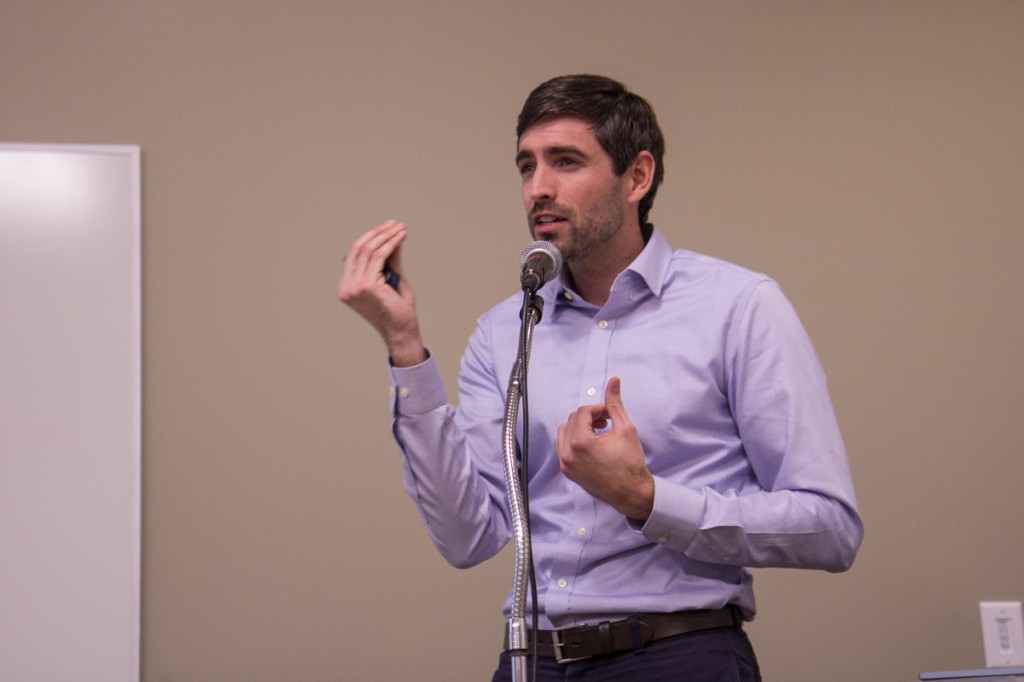Memory is an amazing power. Humans can relive past events by simply willing them to come to mind. But as vivid and fascinating as memory can be, how precise is it?
Intuition might say that memory is very precise. Humans rely on memory for everyday habits, driving directions, performing tasks at work, and academic tasks. However, numerous studies in psychology indicate that memories can be created and distorted.
As it turns out, the answer to the question of memory’s precision is not so simple. Gregory Koop, an assistant professor of psychology at Eastern Mennonite University (EMU), explained how cognitive psychologists model memory in a recent Suter Science Seminar.
Cognitive psychology deals with how people “take in information content from the world and process that information and use it in a meaningful way that helps us interact and successfully navigate our everyday life,” said Koop.
Memory is just one way people process information. Humans rely heavily on memory, but Koop cited two studies that suggest memory is not reliable. A series of experiments by psychologist Elizabeth Loftus showed that wordings of questions regarding visual memory could change the details of the memory. Another study by Loftus showed that entirely new memories could be implanted into a person’s mind.
Koop, who has conducted research and published numerous studies on the memory and cognitive psychology, explained that memory can be divided into three sub-processes: encoding, storage, and retrieval. Encoding involves perceiving the world and processing it into memory. Once memories enter the brain, they are stored. They remain stored until the brain recalls, or retrieves, the memories.
Koop used a model developed by Richard Shiffrin and Mark Steyyers called Retrieving Effectively from Memory (REM) to demonstrate these processes. In REM, the process of encoding is assumed to be incomplete and subject to occasional errors. When memories are retrieved, the brain fills in additional details, which also opens the opportunity for new encoding errors.
To explain this model, Koop discussed an experiment in which a participant is asked to memorize a series of words. The participant is then given a second series of words and asked to identify which words are repeats and which words are new. People do this by retrieving aspects of the stored memory and comparing them with the aspects of a word in the second series.
Koop also explained that REM enables researchers to make computer programs that simulate human memory. Demonstrating the process, Koop input a series of to-be-remembered items which the computer then encoded, stored, and retrieved. Human memory can be modeled by changing the computer’s accuracy in encoding and other variables.
Koop spoke as part of EMU’s annual Suter Science Seminar Series. Lectures are presented by experts in their field and are free and open to the public. Jim Krauss, president of RMH Sentara Medical Center, will speak March 9 at 4 p.m. about his healthcare career that began in Paraguay as a Peace Corps volunteer.
